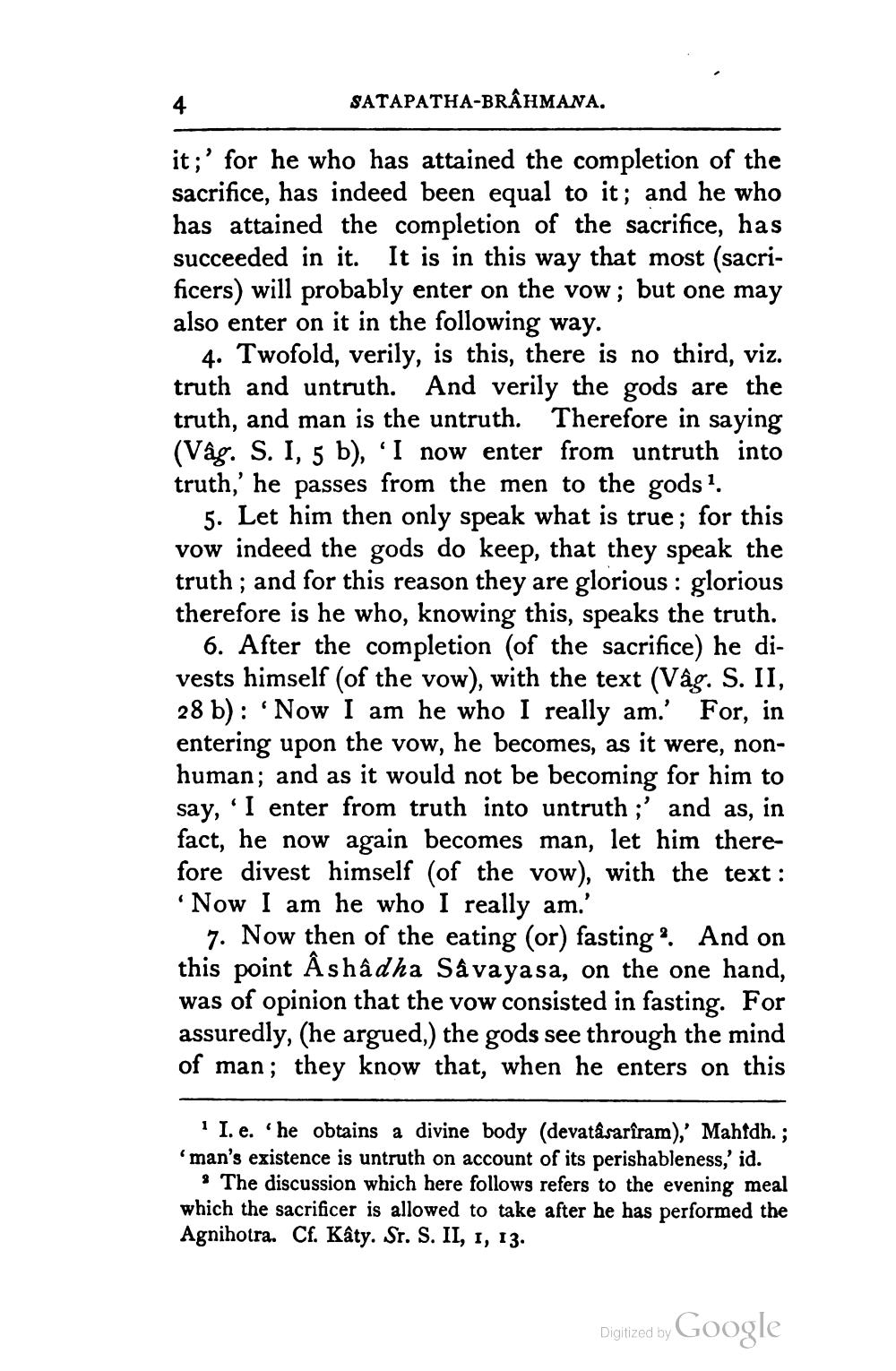________________
SATAPATHA-BRÂHMANA.
it;' for he who has attained the completion of the sacrifice, has indeed been equal to it; and he who has attained the completion of the sacrifice, has succeeded in it. It is in this way that most (sacrificers) will probably enter on the vow; but one may also enter on it in the following way.
4. Twofold, verily, is this, there is no third, viz. truth and untruth. And verily the gods are the truth, and man is the untruth. Therefore in saying (Vág. S. I, 5 b), 'I now enter from untruth into truth,' he passes from the men to the gods 1.
5. Let him then only speak what is true; for this vow indeed the gods do keep, that they speak the truth ; and for this reason they are glorious : glorious therefore is he who, knowing this, speaks the truth.
6. After the completion of the sacrifice) he divests himself (of the vow), with the text (Vág. S. II, 28 b) : 'Now I am he who I really am. For, in entering upon the vow, he becomes, as it were, nonhuman; and as it would not be becoming for him to say, 'I enter from truth into untruth ;' and as, in fact, he now again becomes man, let him therefore divest himself (of the vow), with the text : Now I am he who I really am.'
7. Now then of the eating (or) fasting? And on this point Ashâdha Så vayasa, on the one hand, was of opinion that the vow consisted in fasting. For assuredly, (he argued,) the gods see through the mind of man; they know that, when he enters on this
1 I. e. he obtains a divine body (devatasarîram),' Mahfdh. ; 'man's existence is untruth on account of its perishableness,' id.
9 The discussion which here follows refers to the evening meal which the sacrificer is allowed to take after he has performed the Agnihotra. Cf. Kâty. Sr. S. II, 1, 13.
Diglized by Google




